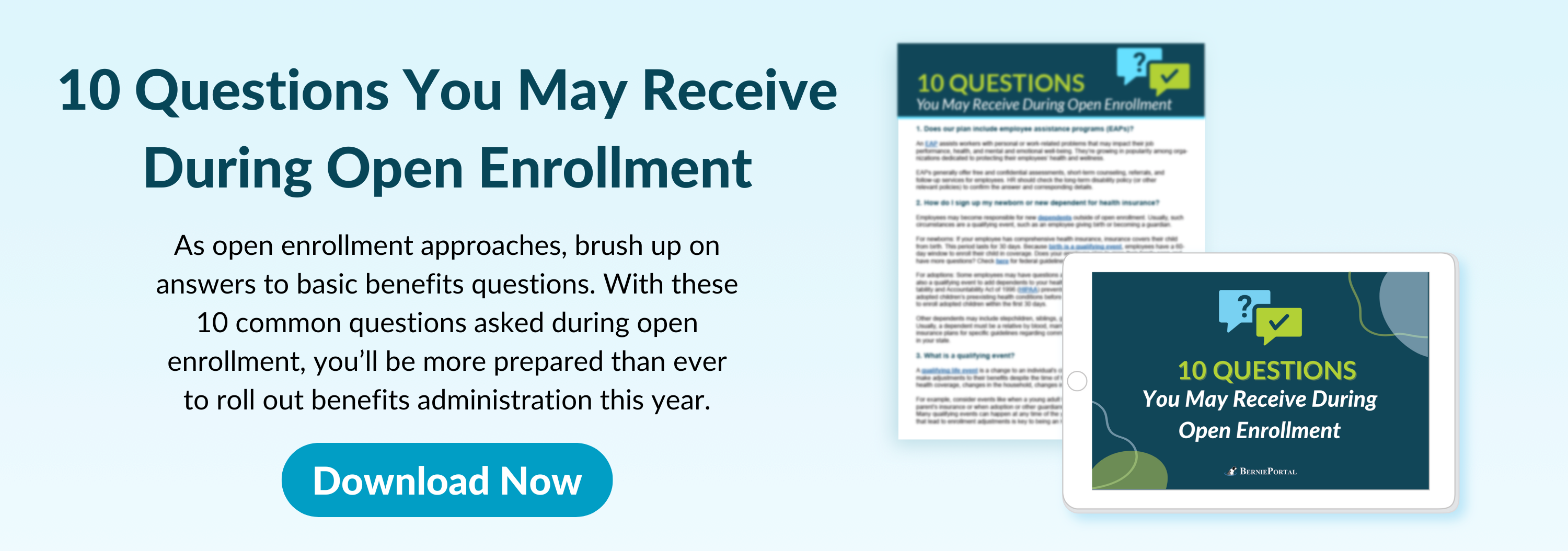

As an HR professional, you've probably fielded questions from new or upcoming parents about health insurance for their babies. Or, if you're new to the HR world, you are likely to receive these questions in the future. Being prepared and having all the answers will make the process smooth for everyone involved—and ensure that those little bundles of joy stay safe and healthy.
Adding a newborn to your health plan can be as easy as do re mi, A B C, 1 2 3, baby is healthy, yeah! But seriously—there's no need for new parents to stress about adding their baby to an insurance plan.
If the parent has a comprehensive health insurance plan, their baby can be covered from the moment of birth. Though, it's not an automatic process. The parent needs to contact their insurance company to inform them that they have a newborn on the way and would like to add the baby to the health insurance plan, which will alter the cost of coverage. This process does not need to take place prior to delivery of the baby in order for the child to be covered. Insurance plans cover newborns retroactively from birth, which includes all checkups, tests, and any medical procedures. The child must be added in the first 30-60 days (depending on the health plan) in order for that retroactive coverage to occur.
If the parent is working at an organization that utilizes an HRIS (human resources information system), they can enroll their children using an online benefits administration portal.
Having a baby is considered a qualifying event . When a qualifying event occurs, the primary insured individual qualifies for a special enrollment period (SEP) where they can make adjustments to their health insurance.
According to HealthCare.gov …
For people with Marketplace health coverage, the SEP window is 60 days after the birth of the child/children.
In addition to making changes to their existing benefits plan, a qualifying event also permits parents to switch health plans entirely during the SEP. For example, a married couple who just had a baby may decide to move from the health insurance plan provided by one person’s employer to the plan provided by the other person’s employer.
Having a child is expensive. Employees may inquire about costs during this process, especially when choosing between their current health plan and an alternative.
As HR, it can be helpful to ask employees the following questions to help them make their decision:

There are only two documents required to add a newborn to a health insurance plan: the baby's social security card and the baby's birth certificate. Some insurance companies may only ask for one.
For mothers who don't give birth in a hospital, here is a step-by-step on how to get a birth certificate for their baby.
Typically, a health insurance provider has access to the newborn's birth records, so they may not ask for a birth certificate. However, in the case that they don't have this information, then the baby's birth certificate will be needed,
It is important to remember that all health insurance providers have different processes in place for adding a newborn to an insurance plan. Make sure to understand which processes your organization's health insurance offers so that you can easily address the concerns of new parents when they arise.
You can stay informed, educated, and up-to-date with important HR topics using BerniePortal’s comprehensive resources:


Written by
Katie Shpak
Katie is the leader of the marketing team at BerniePortal. She oversees all content creation.